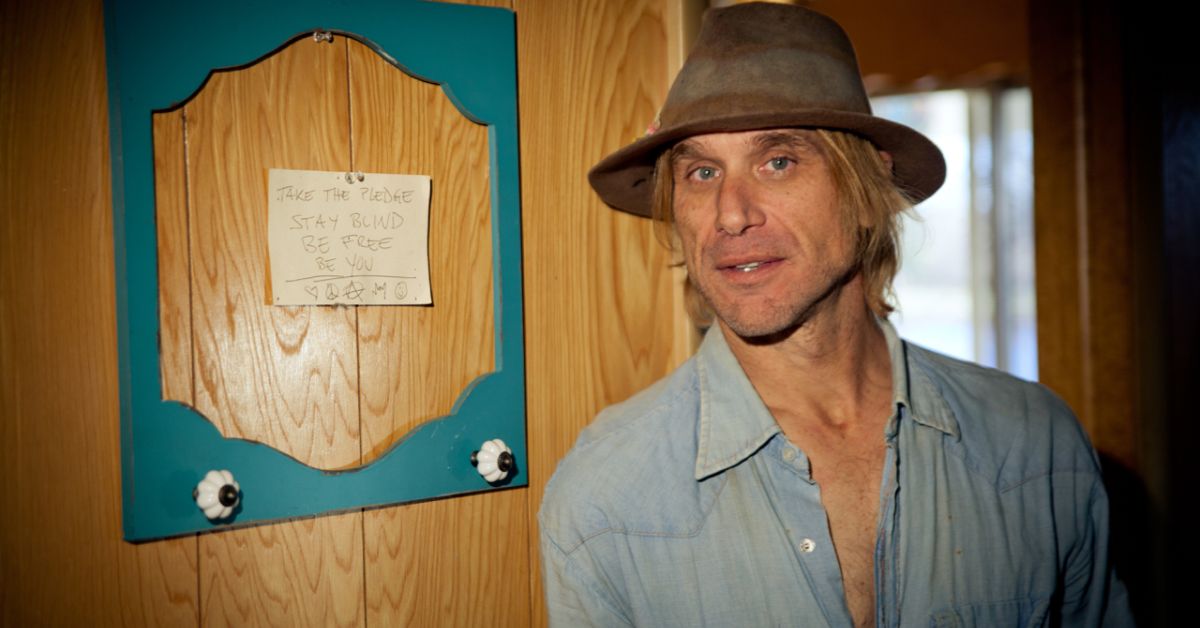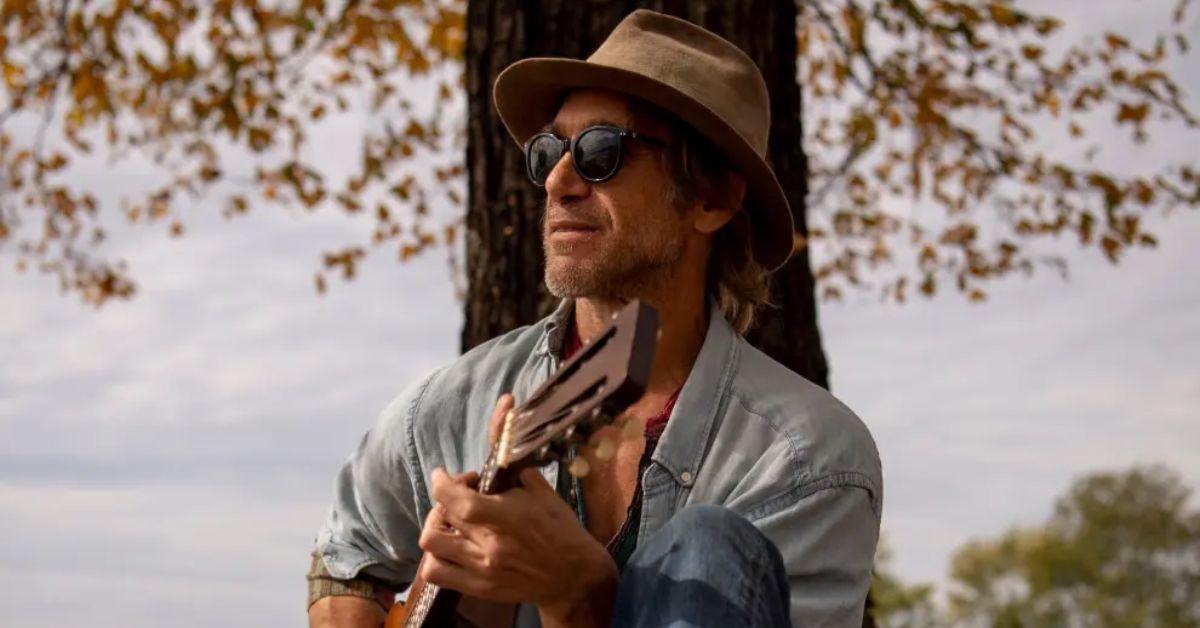Table Of Contents
Todd Snider

Todd Snider was more than just a musician; he was a storyteller, a poet of the everyday, and a true American original whose songs captured the humor, grit, and honesty of life on the fringes.
His passing on November 14, 2025, at the age of 59, marked the end of an era for Americana and alt-country music.
Dubbed the “Vice President of the Abrupt Change Dept.” by his own team, Snider’s life was a testament to living on his own terms, preferring barrooms to boardrooms and embracing the role of a glorified bum, a troubadour who wandered through life’s chaos with a guitar in hand and a wry smile on his face.
His career, spanning over three decades, left an indelible mark on the genre, influencing countless artists and fans with his sharp wit and profound insights.
In this comprehensive biography, we will delve into Snider’s formative years, his rise through the music industry, his independent spirit, the tragic events of his final weeks, and his enduring legacy.
Drawing from his official statements, obituaries, and tributes, we will paint a full picture of the man behind the music.
Whether you are a longtime fan or new to his work, this post aims to celebrate Snider’s contributions while providing updated insights from recent sources.
The Formative Years: From Portland Drifter To Texas Epiphany

Todd Daniel Snider was born on October 11, 1966, in Portland, Oregon, and raised in the nearby suburb of Beaverton.
Growing up in the Pacific Northwest, Snider’s early life was marked by a restless spirit that would define his entire career.
He graduated from Beaverton High School in 1985 and briefly attended Santa Rosa Junior College in California, where he picked up the harmonica.
However, it was a move to San Marcos, Texas, in the mid-1980s that ignited his passion for music.
San Marcos was not just a change of scenery; it was a cultural immersion into the heart of American songwriting tradition.
At the legendary Gruene Hall, Snider witnessed Jerry Jeff Walker perform solo with just an acoustic guitar.
This moment was an epiphany.
With little prior musical experience beyond his harmonica playing, Snider decided right then to become a songwriter “the very next day.”
He later reflected on this in interviews, saying his ambition was to “be a drifter or a bum, and a troubadour is the most glorified bum you can be.”
Under the mentorship of Kent Finlay at the Cheatham Street Warehouse, a proving ground for aspiring songwriters, Snider honed his craft.
Finlay introduced him to masters like Guy Clark, Kris Kristofferson, John Prine, and Shel Silverstein.
These influences shaped Snider’s narrative style, teaching him to distill life’s messy truths into poignant verses.
He began performing in small rooms around San Marcos and Austin, drawing enthusiastic crowds with his raw, honest performances.
This period forged Snider’s outsider perspective, one that rejected mainstream polish in favor of authenticity.
As he absorbed the lessons of Texas songwriting, Snider’s voice emerged as uniquely his own, humorous, gritty, and profoundly honest.
From these humble beginnings, he moved to Memphis around 1990, setting the stage for his professional breakthrough.
To expand on his early influences, Snider often credited Prine as a hero, even assisting on Prine’s 1991 album The Missing Years.
Their friendship lasted until Prine died in 2020.
Snider’s time in Texas was not just about learning; it was about living the drifter’s life, hitchhiking and experiencing the world firsthand, which infused his songs with real-world grit.
The Troubadour’s Ascent: Memphis Mentors And Major Label Debut

Snider’s relocation to Memphis marked the start of his professional apprenticeship.
Connecting with songwriter Keith Sykes, through a demo tape passed by his father, Snider landed a residency at The Daily Planet club, which became his creative hub and the namesake for his debut album.
Sykes, a former member of Jimmy Buffett’s Coral Reefer Band, introduced Snider to Buffett, who signed him to Margaritaville Records (distributed by MCA) after seeing him perform.
This led to Snider’s 1994 debut, Songs for the Daily Planet, produced by Tony Brown and Mike Utley.
The album introduced Snider to a national audience with the hidden track “Talkin’ Seattle Grunge Rock Blues,” a parody of the grunge scene that reached No. 31 on Billboard’s Album Rock Tracks chart.
The single “Alright Guy” gained VH1 rotation, showcasing Snider’s self-deprecating humor.
Follow-up albums Step Right Up (1996) and Viva Satellite (1998) continued this momentum.
Step Right Up, co-produced with Brown and Utley and backed by the Nervous Wrecks band, was praised as “more stunning” than his debut.
Viva Satellite, with a rockier sound produced by John Hampton, included tracks like “Doublewide Blues.”
However, Snider’s major label tenure ended dramatically.
Struggling with drugs, he insulted MCA executives at a 1998 private party and walked off stage, leading to his prompt dismissal.
This “abrupt change” cemented his anti-establishment identity, freeing him from industry constraints.
During this era, Snider’s songwriting evolved, blending folk, rock, blues, and alt-country.
His lyrics often poked fun at societal norms, as in “Talkin’ Seattle,” which mocked the grunge hype.
This period also saw him co-writing with artists like Mark Chesnutt (“Trouble”) and Jack Ingram.
The East Nashville Skyline: Defining A Scene On Oh Boy Records

Freed from major labels, Snider found sanctuary at Oh Boy Records, founded by his hero John Prine.
This era allowed artistic freedom, solidifying his voice and making him a key figure in Americana.
Releases included Happy To Be Here (2000), a solo acoustic album produced by Ray Kennedy; New Connection (2002), noted for its observations; the live Near Truths and Hotel Rooms (2003); and the landmark East Nashville Skyline (2004).
Co-produced with Will Kimbrough, the latter was a manifesto for East Nashville’s independent scene, with anthems like “Play a Train Song” and “The Ballad of the Kingsmen,” linking cultural panics from “Louie Louie” to post-Columbine fears.
Critics raved: Pitchfork called it his “wittiest and feistiest,” and it charted at No. 28 on Independent Albums.
Snider followed with The Devil You Know (2006) on New Door Records, reaching No. 4 on Heatseekers and earning year-end accolades from Rolling Stone and Blender.
East Nashville became synonymous with non-conformity thanks to Snider, who helped architect the scene’s ethos.
His work here emphasized storytelling over commercialism, inspiring a generation.
The Independent Path: Aimless Records And Artistic Proliferation

In 2008, Snider founded Aimless Records, embodying his desire for complete autonomy.
Debuting with the political EP Peace Queer, which topped Americana Airplay, he released acclaimed albums like The Excitement Plan (2009), produced by Don Was and praised for intimacy; Agnostic Hymns & Stoner Fables (2012), dissecting inequality and landing on Rolling Stone’s Top 50; Cash Cabin Sessions, Vol. 3 (2019), a folk return recorded at Johnny Cash’s studio; and First Agnostic Church of Hope and Wonder (2021), blending funk and folk.
Snider collaborated widely: co-founding Hard Working Americans with Dave Schools (albums 2014-2017); exploring rock as Elmo Buzz (Eastside Bulldog, 2016); and authoring his 2014 memoir I Never Met a Story I Didn’t Like.
Tributes included Time as We Know It (2012) to Jerry Jeff Walker.
His final albums, Crank It, We’re Doomed (2023) and High, Lonesome and Then Some (2025), showcased his enduring creativity.
Discography Table

To provide structured insight into Snider’s prolific output, here is a table of his major albums, including release years, labels, and key notes:
| Album | Year | Label | Notes |
|---|---|---|---|
| Songs for the Daily Planet | 1994 | Margaritaville/MCA | Debut: “Talkin’ Seattle” hit No. 31 on Billboard; VH1 rotation for “Alright Guy”. |
| Step Right Up | 1996 | Margaritaville/MCA | Praised as “more stunning” than the debut, backed by Nervous Wrecks. |
| Viva Satellite | 1998 | Margaritaville/Island | Rock shift; ended major label deal after the incident. |
| Happy To Be Here | 2000 | Oh Boy | Solo acoustic; featured Kimbrough and Buchanan. |
| New Connection | 2002 | Oh Boy | Potent observations; consistent quality. |
| Near Truths and Hotel Rooms | 2003 | Oh Boy | Live: A− from Robert Christgau. |
| East Nashville Skyline | 2004 | Oh Boy | Breakthrough: A from Christgau; defined the East Nashville scene. |
| The Devil You Know | 2006 | New Door | No. 4 Heatseekers; year-end lists. |
| Peace Queer | 2008 | Aimless | Political EP; No. 1 Americana Airplay. |
| The Excitement Plan | 2009 | Aimless | Produced by Don Was; four stars, Rolling Stone. |
| Live: The Storyteller | 2011 | Aimless | Double live; A− Christgau. |
| Agnostic Hymns & Stoner Fables | 2012 | Aimless | Inequality themes: Rolling Stone Top 50. |
| Time as We Know It | 2012 | Aimless | Jerry Jeff Walker tribute. |
| Hard Working Americans | 2014 | Melvin | Supergroup debut. |
| Rest in Chaos | 2016 | Melvin | Band originals. |
| We’re All In This Together | 2017 | Melvin | Live double; A− Christgau. |
| Eastside Bulldog | 2016 | Aimless | Elmo Buzz project; rock ‘n’ roll. |
| Cash Cabin Sessions, Vol. 3 | 2019 | Aimless | Solo folk; A Christgau. |
| First Agnostic Church of Hope and Wonder | 2021 | Aimless | Funk-folk; B+ Christgau. |
| Crank It, We’re Doomed | 2023 | Aimless | Charted on Americana/Folk. |
| High, Lonesome and Then Some | 2025 | Aimless | Final album; reflective. |
This table highlights Snider’s evolution from major label artist to independent force.
The Final Weeks: A Tragic Cascade Of Abrupt Changes

Snider’s final weeks were a heartbreaking sequence of violence, legal issues, and medical decline.
In early November 2025, his “High, Lonesome and Then Some” tour was canceled after a violent assault in Salt Lake City, requiring staples in his head.
On November 2, he was discharged from Holy Cross Hospital.
A dispute led to his arrest for disorderly conduct, trespassing, and threats.
Returning to Tennessee, breathing difficulties revealed undiagnosed walking pneumonia, complicated by trauma.
He passed on November 14, 2025. The cascade, assault, arrest, and pneumonia fulfilled his “abrupt change” moniker.
Recent reports confirm pneumonia as the cause, exacerbated by injuries. Snider had health issues like spinal stenosis, but this was sudden.
Legacy: The Immortal Troubadour And Tributes

Snider’s legacy is authenticity and storytelling, defining Americana through East Nashville.
Peers mourned: Fiona Prine inducted him into the “troubadours” canon; Jason Isbell noted “freak flags at half-staff.”
Tributes poured in on X: “RIP Todd Snider” from fans and artists like Ben Kweller.
His team urged playing his records loudly.
Inducted into the Oregon Music Hall of Fame (2021), nominated for Americana awards, his songs, like “Alright Guy,” were covered widely.
Trivia

Interestingly, Snider’s parody “Talkin’ Seattle Grunge Rock Blues” became his breakout hit, satirizing the 1990s grunge scene while he himself was rooted in folk, proving his knack for cultural commentary.
Conclusion

Todd Snider’s life was a song in itself, full of twists, humor, and heart.
From drifter to legend, he reminded us to embrace the abrupt changes with grace.
As we remember him, turn up his music and let it wake you up.
Explore more biographies and music stories on our site for similar inspiring tales.
What are your favorite Snider songs?
Share in the comments!






